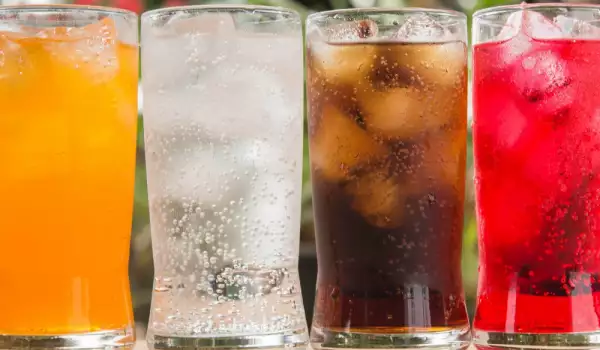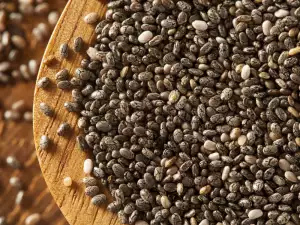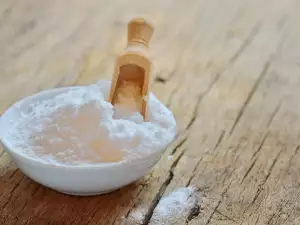Carbonated water is a refreshing drink and a good alternative to sugary soft drinks. However, there are fears that drinking soda may be bad for your health.
What is carbonated water?
Carbonated water is water that is infused under pressure with carbon dioxide. Unlike ordinary pure water, carbonated water has added salt to improve the taste. Sometimes other minerals are added in small amounts.
Carbonated water is acidic
Carbon dioxide and water react chemically to produce carbonic acid, a weak acid that has been shown to stimulate the same nerve receptors in your mouth as mustard. This causes a burning, prickly sensation, which can be irritating and pleasant. The pH value of carbonated water is 3-4, which means that it is slightly acidic.
Does it affect dental health?
One of the biggest concerns about sparkling water is its effect on teeth. There is very little research on this topic, but one study found that carbonated mineral water damages tooth enamel only slightly more than plain water.

Does it affect digestion?
Carbonated water can be beneficial for digestion in several ways. It can improve the ability to absorb. Carbonated water can also prolong the feeling of satiety after a meal more than plain water.
Carbonated water can help relieve constipation. People who experience constipation may find that drinking carbonated water helps relieve their symptoms. In a two-week study of 40 elderly people who suffered strokes, the average frequency of bowel movements almost doubled in the group who drank carbonated water compared to the group who drank tap water.
Carbonated water reduces the risk of heart disease. When a group of pregnant Hispanic women were given carbonated drinks rich in sodium as part of a study, they had a lower risk of heart disease.
In addition, those who drink carbonated water also show improved digestion, along with emptying the gallbladder, as well as lower rates of dyspepsia and constipation. The benefits of drinking carbonated water have only been found in studies of groups of people who only report that they not only feel better after consuming it, but also show an improvement in the digestion of food and so on.
How does drinking carbonated water affect bone health?
Many people believe that carbonated drinks are bad for the bones, because of their high acid content. However, research shows that there is no connection. A large observational study of more than 2, 500 people found that Coca Cola was the only beverage associated with significantly lower bone mineral density. Carbonated water does not seem to affect bone health.
Drinking carbonated water can help prevent dehydration. If you are dehydrated, you may experience dry mouth, fatigue, headaches and impaired performance. Chronic dehydration can contribute to digestive problems and complications with the heart and kidneys.
Maintaining hydration is key to weight loss. If you feel hungry, it may just mean that you are dehydrated, because your body cannot make a difference. Drinking enough water can help you feel fuller for longer and consume fewer calories throughout the day.
Carbonation in carbonated water causes some people to experience gas and bloating. If you notice an excessive amount of gas while drinking carbonated water, it is best to switch to plain water.

In addition, most sparkling waters can be a much healthier alternative to soft drinks, as long as they do not contain sweeteners or added sugars - which is something you will need to check through the nutrition label.
In general, there is no strong evidence that ordinary carbonated water (carbonated drinks without added sugar or other ingredients) has a detrimental effect on your health. An exception may be for those with pre-existing gastrointestinal problems, as this may adversely affect the digestive tract. But a glass of plain carbonated water is just as hydrating as plain water and can even be a fantastic alternative to sugary sodas.
You should always keep in mind any added ingredients in carbonated water, especially sugar, artificial sweeteners and sodium, all of which can potentially have a detrimental effect on your body. Different brands will also differ in the amount of ingredients added, so it is always best to check the nutrition label.
When choosing carbonated water, try to give preference to unsweetened varieties without added sugar. Some brands use the flavor of real fruit juice for taste, which is completely fine and will not contribute to added sugar content.
If in doubt, you will never go wrong with the safest and healthiest choice: plain mineral water. Water is the best form of hydration.
Use of carbonated water
Cleaning - Removing stains and dirt from bathroom surfaces can be difficult. Carbonated water acts as the perfect cleanser to get rid of these stubborn marks. Just clean with a cloth soaked in carbonated water and then wipe dry.
Car windshield washer - carbonated water is great for getting rid of bird droppings and dirt on your car windshield. It can also help remove greasy stains or fingerprints. Just spray your windshield with carbonated water and it will help you wipe unpleasant stains.
Jewelry Cleaning - Wearing jewelry every day means the metal can be scratched and darkened. To combat this and keep your jewelry as beautiful as it should be, heat a small amount of carbonated water. Put your jewelry in warm carbonated water for a few seconds, then wipe off any residue or dirt with a soft toothbrush. Your gems should become sparkling. Jewelry cleaning turns out to be child's play.
Cooking with carbonated water
Carbonated water can also be used in the culinary world for pastries or various dishes. It will do you a good job when making bread, fluffy meatballs, eggy bread, pancakes, filo pastry pie, a successful sponge cake and much more.




















Comments